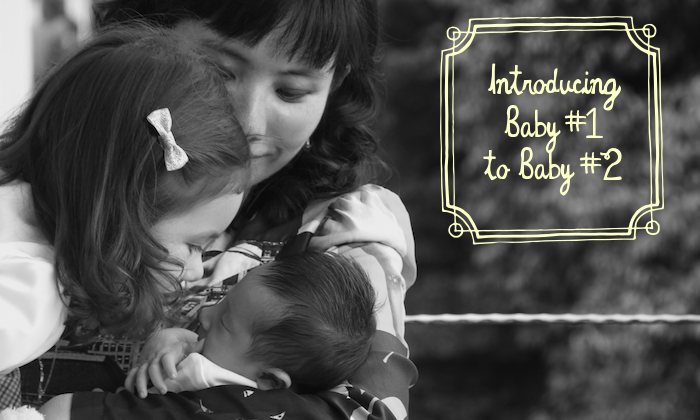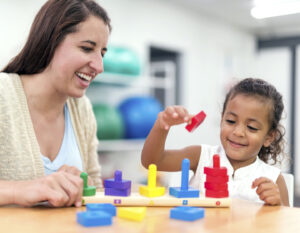

Some nifty nuggets of wisdom for a smooth introduction between your firstborn and your newborn.
News of a new addition to the family can often be either a wonderful surprise or a sigh of relief if you’ve spent months trying to conceive. Many people I know found the timing and conceiving of their second child to be not quite as straightforward as the first time round.


For us, after having our first child, we decided we would wait at least a year or so before we would consider having a second child. As new parents, we researched everything and found ourselves constantly torn between what was ‘ideal’ and what was ‘practical’. The first year was an exponential learning process through trial and error. We are still continuing this wonderful journey.
We thought it was important to not only enjoy our child in the first formative year but also to find our footing as we took on our new roles as daddy and mummy.


When I first found out I was pregnant with my second child, after the obvious initial jubilation, I immediately thought of Kate Middleton and the numerous celebrities who seemed to be having their #2 around the same time and their eminent struggles coping with having “two under two (or three)”. It is a known fact that upon the arrival of the new baby, the firstborn is no longer the center of attention and must learn to share everything. I have heard about all the nightmarish ordeals and epic temper fits that parents have to deal with when introducing the baby to their older child.
Thankfully, we were ready for the new baby and our transition has been smooth so far. Our firstborn, Faye turned two and a half when Max was born.


Though it wasn’t always easy, I believe we did a reasonably good job in preparing Faye for Max and haven’t experienced any major tantrums or issues yet. It has been nothing short of wonderful. Of course, there is no perfect formula, but here’s what worked for us:
- Spend time with your number one! Have both you and your spouse or anyone else important to your firstborn’s caregiving spend as much time as possible with her. Try to get her accustomed to and being comfortable spending time with more than just one of the parents or caregivers so she is not overly possessive with just one of you.
- Time it right, if you can! Making sure the family is ready and there is additional support for the new arrival.
- Get into a routine as soon as possible! Even though you are armed with experience from the first time round, life with a baby is still unpredictable in the first month. And those 3a.m. feedings can take their toll. However, once a pattern is established, it is smooth sailing thereafter.
- Start preparing your firstborn for the new addition early on! Explain as best you can about the “baby in the tummy”. Be open in discussing any concerns and getting the firstborn involved in setting up of the new nursery.
- Building of a loving, caring home environment from the get-go! Help your child develop good habits that will make life easier for all of you when baby comes. Encourage the sharing of toys with peers or caring for pets at home. If the firstborn is already in school and interacting with other children regularly, he’s likely already introduced to the concept of sharing, of both toys and attention.
- Make your older child feel involved on the day of baby’s birth! Give your eldest tyke a “Thank you” gift at the hospital when she meets her little sibling for the first time. Prepare a small present or a balloon for your firstborn for graduating to the role of big brother/sister. Brownie points scored!
- Don’t forget about the pets you may have (who are essentially also firstborn fur kids)! Dogs in particular are very sensitive to a new baby, so let them sniff the baby or her laundry shortly after you’ve brought her home (but only if the pet is non-aggressive or child-friendly).
- Give plenty of attention to your firstborn after the baby has arrived! Spend solo time bonding with your firstborn and allocate special days out in the days and weeks after the new baby has moved in.
Having baby #2 needs not be all screams and tears from the older one. It takes a lot of patience and on-going effort from everyone at home. Try to be adaptable, savour every moment (take a lot of photographs) and have many laughs along the way. That is till baby #3 comes along, then that’s a whole new story!
 View All
View All











 View All
View All





 View All
View All


 View All
View All














